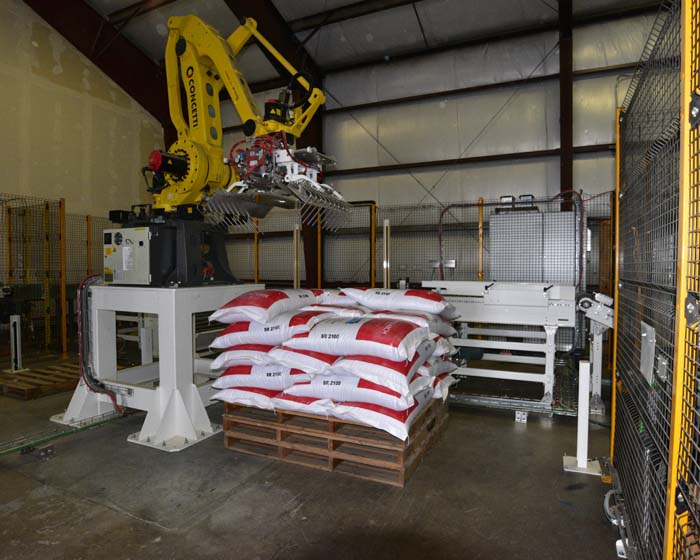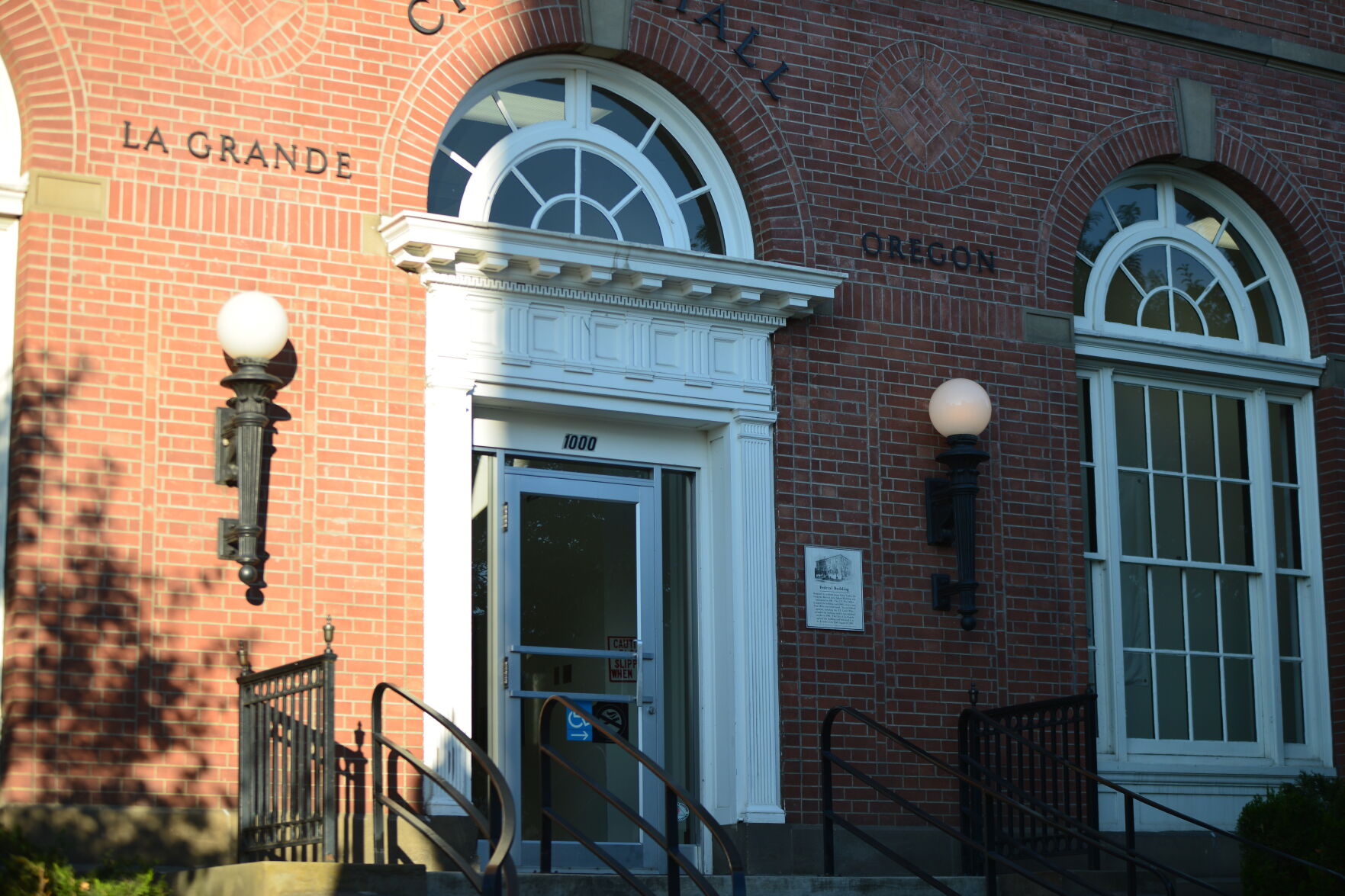Robotic stackers assisting Blue Mountain Seeds
Published 7:00 am Saturday, December 9, 2023

- DSC_2225.JPG
IMBLER — These first-year workers at Blue Mountain Seeds will never call in sick.
Introducing two workers who never break a sweat or run out of breath while stacking 50-pound bags of grass seed hour after hour. A pair of workers who are stoic yet give some watching them reason to smile.
They are the robotic stacking machines Blue Mountain Seeds of Imbler added earlier this year. The stackers, formally known as palletizers, are doing work that employees previously did by hand. The addition of the robotic stackers means that Blue Mountain Seeds employees now have more time to devote to other responsibilities.
“They are making a positive impact,” said Bill Merrigan, the general manager of Blue Mountain Seeds, about the palletizers.
Merrigan said that when stacking work is done now Blue Mountain Seeds no longer has to shift personnel from one site to another at its processing plants to make enough manpower available.
“This means we do not have to shut down one operation when we are stacking,” he said.
Merrigan said the robotic stackers, with the assistance of a couple of Blue Mountain Seeds employees, can load 80 50-pound bags of bags of grass seed onto pallets each hour. This includes the time needed to bring bags of grass seed to the stackers with a forklift and then take out loaded pallets, periods of time the stackers are not running.
Before the robotic stackers were added, it took a team of four or five workers an hour to stack 60 bags of grass seed.
Once the grass seed bags are on pallets they are ready to be shipped or stored.
Merrigan said the robotic stackers are doing more than freeing up staff to do other work. The stackers are also sparing employees wear and tear on their bodies and helping Blue Mountain Seeds during the labor shortage.
Optical illusion
Occasionally the robotic stackers appear to have a light touch. Merrigan said that when one is observing the stackers at work from a certain angle it can appear that the machines sometimes make an extra spin for no apparent reason.
Merrigan said, though, this is nothing more than an optical illusion.
The extra spins are necessary to get bags of grass seed properly placed on pallets so they are secure. The robotic stackers do not make adjustments in their motion sequences based on changing situations but instead only do so when the computer program they are running off of is adjusted.
‘Definitely a help’
Robotic palletizers were introduced in the early 1980s, according to the Packaging Machinery Manufacturers Institute.
Features of robotic palletizers include an arm tool for grabbing items from a table or conveyor and positioning it on a pallet.
The palletizers are “very stationary,” Merrigan said, and not able to move from place to place.
The stackers were purchased from different companies. It took several weeks for workers from the two companies to set up each one, Merrigan said. Once operational, the machines require relatively little maintenance.
The robotic stackers are in Blue Mountain Seeds’ grass seed processing plants in Imbler and Alicel. One was purchased from the Concetti Corporation in Italy and the other from Columbia Okura, an automation firm in Vancouver, Washington. The robotic stackers were purchased two years ago for about $300,000 each. The one from Columbia Okura began operating in October 2022 and the stacker from Concetti started running last winter.
Blue Mountain Seeds appreciates the benefits of the machines.
“They are definitely a help,” Merrigan said.





